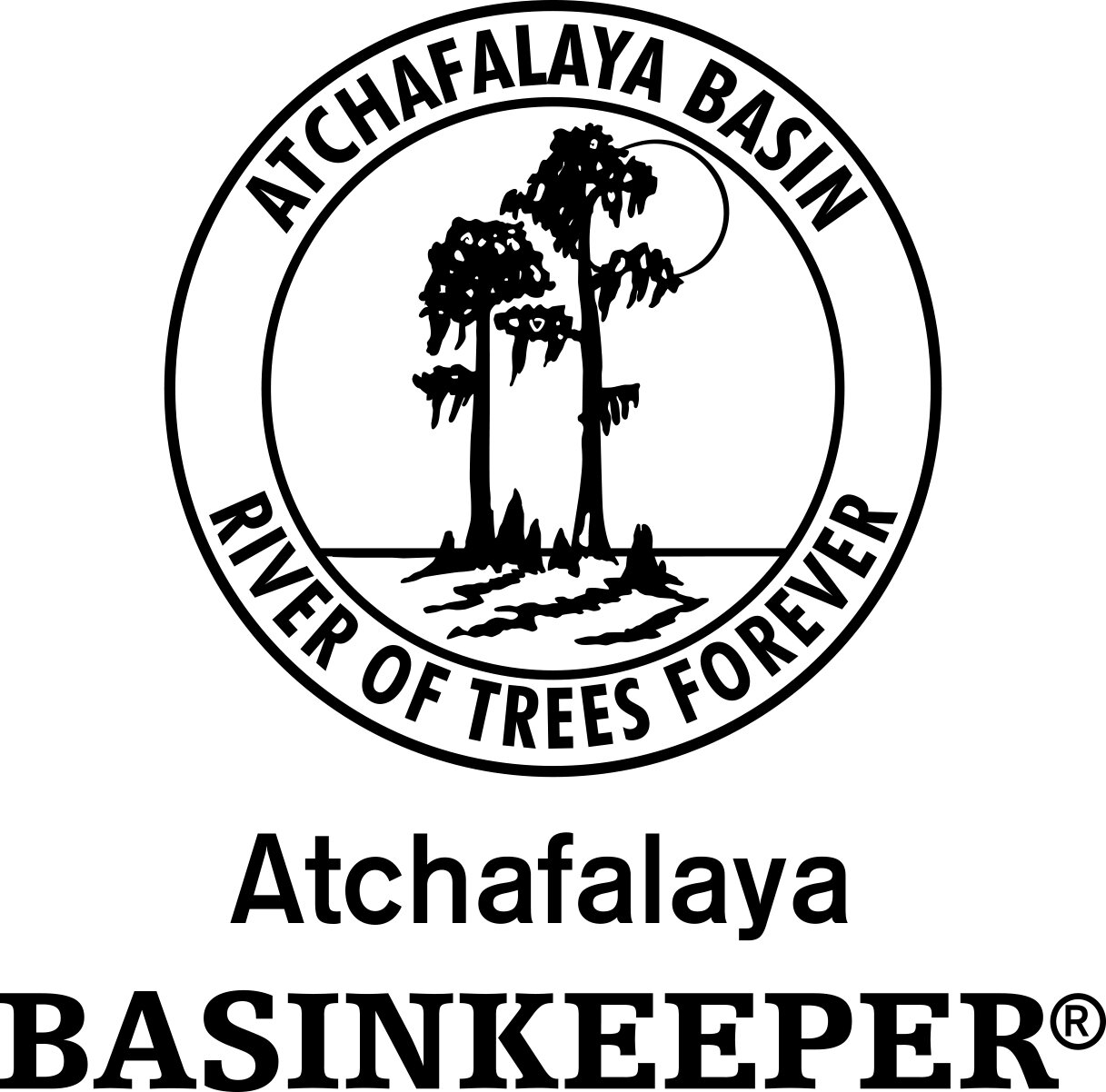St. Martin Parish Filed Amicus Brief in support of legal challenge to East Grand Lake Project in the Atchafalaya Basin
(Louisiana) – On Tuesday, June 10, 2025, St. Martin Parish filed an Amicus Brief in support of a lawsuit challenging the U.S. Army Corps permit for the East Grand Lake Project. St. Martin is the second parish to file an Amicus Brief in support of this case, joining Iberville Parish who filed a similar Amicus Brief on March 5th.
Atchafalaya Basinkeeper, Louisiana Crawfish Producers Association-West, Healthy Gulf, Sierra Club and its Delta Chapter, and Waterkeeper Alliance filed this lawsuit on May 15, 2024 to challenge the U.S. Army Corps of Engineers’ approval of the Louisiana Coastal Protection and Restoration Authority’s (CPRA) East Grand Lake (EGL) project in the Atchafalaya Basin. The lawsuit, presented by the Tulane Environmental Law Clinic, contests the Corps’ granting of a Clean Water Act section 404 permit allowing the dredging and filling of impacted wetlands. This permit was granted to CPRA for the implementation of the EGL project.
CPRA has already been attempting to move forward with the EGL project in the face of intense opposition from parishes, fishermen, and local communities. Illustrating this public opposition, Iberville Parish, Assumption Parish, and St. Martin Parish each passed resolutions against the EGL project, highlighting the threat that filling wetlands in the Basin poses to the future of their parish and the rest of Louisiana. At public meetings, many people expressed strong opposition to the Project, and 2791 people signed a petition online and in-person against the EGL project. CPRA has ignored this public opposition to the Project and continues to push forward.
Though St. Martin Parish is not a party to this action, the parish council filed this amicus brief to emphasize the severity of the harm the EGL project could cause and to encourage the court to listen to the vocal public opposing the project. Parish President Pete Delcambre and Council Chair Chris Tauzin voiced the Parish’s opposition to the project, expressing that St. Martin stands with Atchafalaya Basinkeeper in the fight to protect the Basin and stop harmful projects that will fill wetlands with sediment. Hoyt Louviere, representing District 1 on the Parish Council, expressed concern with the EGL project’s similarity to past projects that have destroyed irreplaceable wetlands and caused them to fill in, saying that the state cannot keep doing the same thing and expect different results.
While the EGL project has been coined a “swamp enhancement project,” experience and sound science demonstrate that the project, like similar projects in the past, will destroy irreplaceable flood capacity by causing excessive sedimentation in the East Grand Lake area. This project will ultimately convert productive and vital swamp habitat into bottomland hardwood forest by introducing sediment-laden river water and physically dispersing dredged sediment in the area. The Basin is a vital tool in managing Mississippi River floodwaters, and destructive projects like East Grand Lake threaten the continued habitability of Louisiana.
As North America's largest contiguous swamp, the Atchafalaya Basin is among the world's most productive ecosystems. The Basin's wetlands are vital for migratory birds across the Western Hemisphere, and the ability to store and release floodwaters helps protect south-central Louisiana from flooding. The groups and parishes against EGL alike hold that failing to revoke the permit and cease implementation could lead to severe environmental and economic consequences. Local fisheries and crawfishers could lose access to the area, while the introduction of nutrient-rich river water from agricultural runoff may worsen hypoxia, further degrading water quality.
After decades of manipulation through ill-advised projects and oil and gas exploration, the Lower Atchafalaya Basin Floodway System’s natural water flow has been severely altered. A significant portion of these initiatives, even aside from those related to fuel production, receive backing from oil and gas firms and large land corporations. These entities profit from alterations that disrupt commercial fishing and public access while facilitating the increased privatization of wetland forests for activities such as private logging. This has led to stagnant water, sedimentation, and associated loss of floodwater carrying capacity. This mismanagement impairs the Basin’s ecosystem, navigation, and flood control abilities.
Often framed as water quality projects, river diversions in the Basin that are permitted or conducted by the Corps—such as those occurring in Buffalo Cove, Coon Trap, and Beau Bayou—have already filled thousands of acres of swamp wetlands. This has led to the loss or severe degradation of approximately 75% of the Basin’s cypress swamps, lakes, and bayous. Without intervention, the groups in opposition contend that these projects will irreparably change the environment and the lives of impacted communities.
“The EGL project, like all the other projects, will forever destroy the wetlands that crawfishermen depend on to make a living,” said Avery Theriot, President of Louisiana Crawfish Producers Association-West. “These wetlands are the heart of our Cajun culture.”
For more information, visit www.basinkeeper.org/east-grand-lake.
https://www.basinkeeper.org/s/StMartinParishAmicus.pdf
https://www.basinkeeper.org/s/EGL-Complaint.pdf
###
Atchafalaya Basinkeeper, founded in 2004, is a member organization of Waterkeeper Alliance, representing over 2000 members. The mission of Atchafalaya Basinkeeper is to protect and restore the swamps, lakes, rivers, streams, and bayous of the Atchafalaya Basin for future generations. For more information, visit basinkeeper.org.
Healthy Gulf is a nonprofit organization dedicated to protecting and restoring the natural resources of the Gulf of Mexico. Since 1994, Healthy Gulf’s mission has been to collaborate with and serve communities who love the Gulf of Mexico by providing the research, communications, and coalition-building tools needed to reverse the long pattern of over-exploitation of the Gulf’s natural resources. Visit healthygulf.org or follow @HealthyGulf on Facebook, Instagram, X, and LinkedIn.
Louisiana Crawfish Producers Association-West (LCPA-West) was formed in the late 80s-early 90s because of trespassing threats against crawfishermen in the Atchafalaya Basin. The mission of LCPA-West is to fight for and protect the free use of navigable waters and water bottoms of the Atchafalaya Basin and state. LCPA-West also fights to restore the Atchafalaya Basin to its natural state as much as possible and does everything possible to bring the polluters and abusers of the Basin to justice. The organization fights for all users of the basin. For more information, visit lcpawest.com.
The Sierra Club is an American environmental organization with chapters in all 50 U.S. states, Washington D.C., and Puerto Rico. The Sierra Club's stated mission is "to explore, enjoy, and protect the wild places of the earth; to practice and promote the responsible use of the earth's ecosystems and resources; to educate and enlist humanity to protect and restore the quality of the natural and human environment; and to use all lawful means to carry out these objectives.” For more information, visit act.sierraclub.org.
Waterkeeper® Alliance is a global movement uniting more than 300 community-based Waterkeeper Organizations
and Affiliates around the world, focusing citizen action on issues that affect our waterways, from pollution to climate change. The Waterkeeper movement patrols and protects nearly six million square miles of rivers, lakes, and coastlines in the Americas, Europe, Australia, Asia, and Africa. For more information, visit waterkeeper.org


